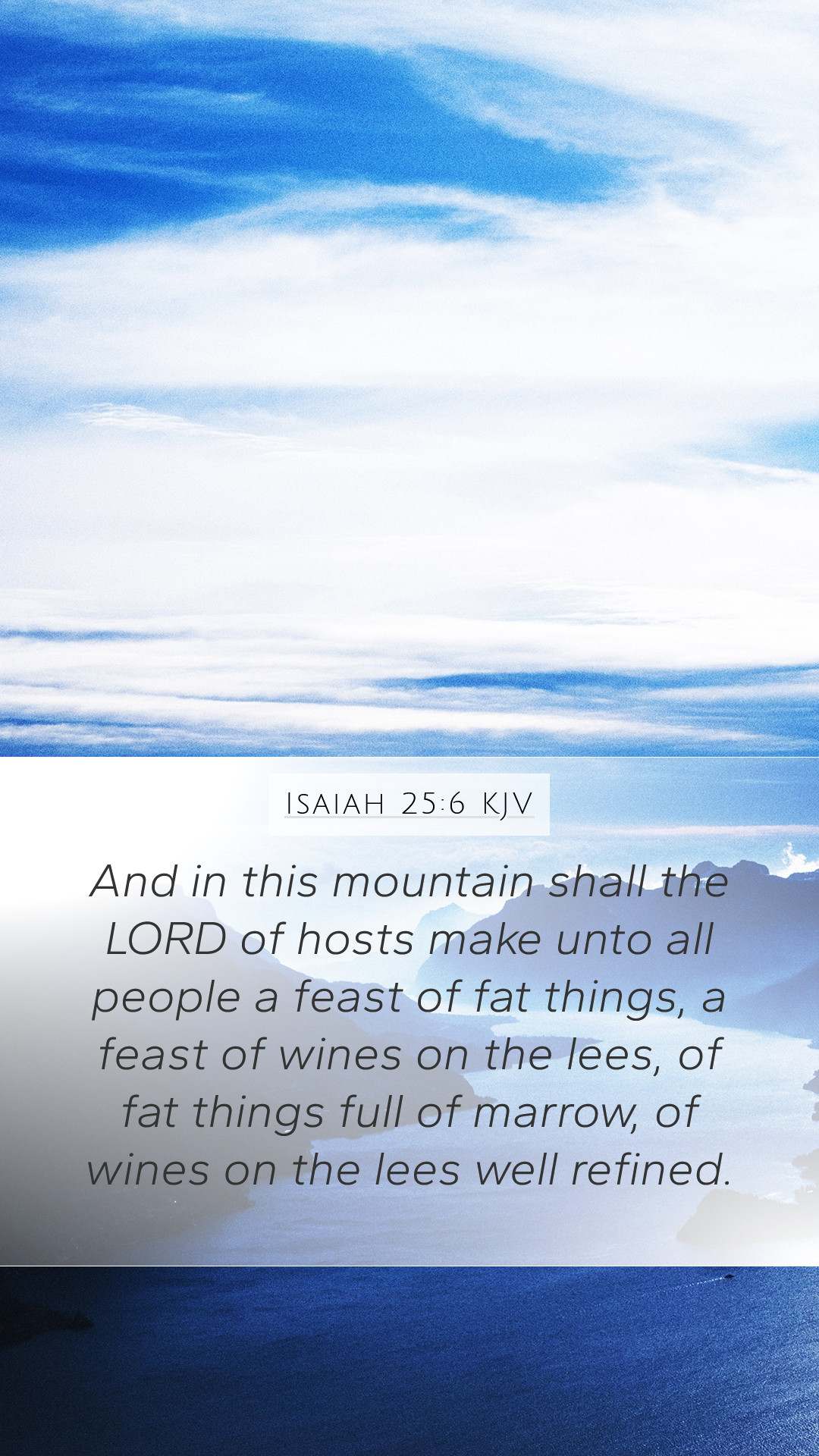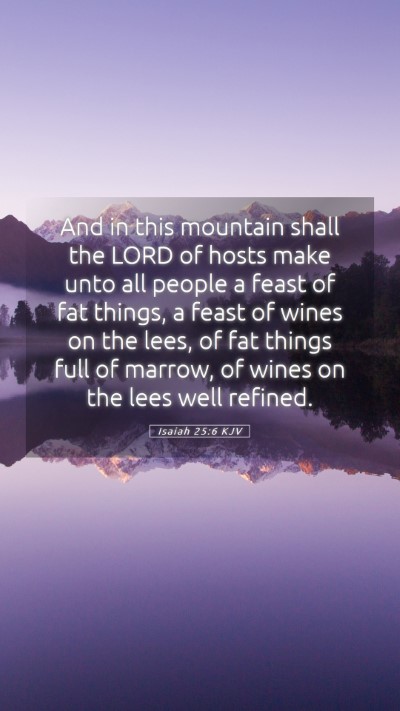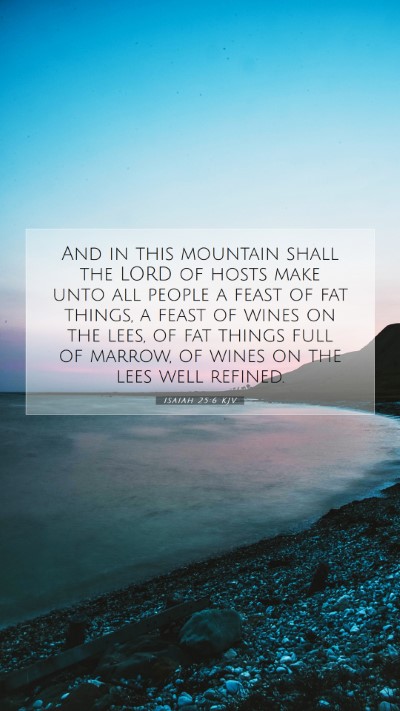Understanding Isaiah 25:6
Verse: "And in this mountain shall the Lord of hosts make unto all people a feast of fat things, a feast of wines on the lees, of fat things full of marrow, of wines on the lees well refined."
Context: This scripture is situated within a prophetic declaration concerning the ultimate triumph of God's kingdom and His provisions for the people. Isaiah prophesies a time of great blessing and abundance for all nations, symbolizing God's invitation to fellowship and enjoyment of His bountiful grace.
Insights from Public Domain Commentaries
Matthew Henry's Commentary
Matthew Henry interprets Isaiah 25:6 as a celebrated announcement of God's graciousness. He highlights that the 'mountain' signifies a divine stronghold where God provides a feast for His people. The imagery of 'fat things' and 'wines on the lees' indicates not only abundance but also the highest quality provisions that God will offer. Here, Henry emphasizes that God invites all people to partake in His goodness, symbolizing the inclusive nature of His grace.
Albert Barnes' Notes
Barnes elucidates that the 'feast' symbolizes the blessings of the gospel and the joys of salvation. In his view, the verse prefigures the messianic banquet that Jesus refers to in the New Testament. Barnes mentions that the reference to "wines" signifies joy and gladness that accompany God’s provision. The ‘well refined’ aspect suggests purity and richness, revealing how God's gifts are of unparalleled quality, contrasting the despair and want found outside His kingdom.
Adam Clarke's Commentary
Adam Clarke brings insights into the festive aspect of the verse, indicating that God's kingdom will be filled with rejoicing and celebration. He argues that the description of 'marrow' speaks to deep satisfaction and health for the soul, showing how the spiritual nourishment provided by God restores and uplifts. Clarke also connects this imagery with the various Old Testament sacrificial feasts, asserting that this banquet signifies a transformative gathering where God’s people experience true communion with Him.
Meaning and Significance of Isaiah 25:6
This verse serves multiple interpretative layers:
- Abundance: The feast represents God's readiness to provide for the needs of every person, emphasizing His generosity.
- Inclusivity: The invitation to "all people" reflects the universal nature of God’s salvation, extending beyond Israel.
- Joy: Wines on the lees symbolize joy and celebration, portraying the happiness that accompanies salvation and divine favor.
- Restoration: The fatness and marrow speak to restoration and emphasis on soul satisfaction.
- Messianic Fulfillment: The verse forebodes the messianic banquet of Christ, where believers will partake in eternal fellowship with God.
Applications of Isaiah 25:6
Understanding this verse allows for significant applications in personal and communal contexts:
- In Bible study groups, this verse can inspire discussions on God’s abundance and hospitality.
- In daily life, believers can reflect on ways to share God’s blessings and joy with others.
- This passage encourages a heart of gratitude for spiritual nourishment and joy found in Christ.
Cross References
Related scriptures that expand on the themes of Isaiah 25:6 include:
- Matthew 22:1-2: The Parable of the Wedding Feast, illustrating God’s invitation to His kingdom.
- Luke 14:15-24: The Great Banquet, further emphasizing the call to invite all to God's feast.
- Revelation 19:9: Blessed are those who are invited to the wedding supper of the Lamb, linking New Testament imagery with Isaiah's prophecy.
Conclusion
In summary, Isaiah 25:6 captures the essence of God's provision, joy, and the inclusive invitation to partake in His grace. Both the Old and New Testament contexts enrich our understanding of this verse, revealing profound truths about God's character and intentions for His creation.


